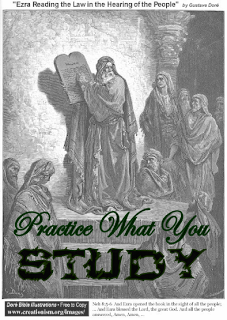Exposition of Cain and Abel: Part II
God gives Cain a warning the same way He warns all of us, Christian and non-Christian alike.
Look at the events here: Verses 5-7
but for Cain and for his offering He had no regard. So Cain became very angry and his countenance fell. Then the LORD said to Cain, “Why are you angry? And why has your countenance fallen? If you do well, will not your countenance be lifted up? And if you do not do well, sin is crouching at your door; and its desire is for you, but you must master it.
Genesis 4:5-7
First, Cain gets angry. Why does he get angry? Does he have any right to be angry? How many of us gets angry when we are punished? Why? Makes no sense. Its our fault! Yet we get angry. So Cain sins, and he gets angry. But notice the passage seems to indicate that he is not angry with himself for his actions but he is angry at God.
Even the Lord asks, “Why are you angry? You’re the one who sinned!”
God then shows quickly that even though Cain sinned that God is a forgiving God. By telling Cain “…if you do well” God is telling Cain that He will forgive Cain, even though Cain has sinned on his own, and is angry at God.
Who is a God like You, who pardons iniquity
And passes over the rebellious act of the remnant of His possession?
He does not retain His anger forever,
Because He delights in unchanging love.
Micah 7:18
Go and proclaim these words toward the north and say,
‘Return, faithless Israel,’ declares the LORD;
‘I will not look upon you in anger.
For I am gracious,’ declares the LORD;
‘I will not be angry forever.
Jeremiah 3:12
This idea of “if you do well” is the same as we would think of the word “repent.” The word repent means to turn from evil and to turn to Christ, to turn to good. That is what God is telling Cain. But He also gives Cain a very stern warning. That, if he continues to sin, it will master him.
It is the same that we see in Romans 6:12.
Therefore do not let sin reign in your mortal body so that you obey its lusts,
Romans 6:12
God is telling Cain what is happening in the world that Cain cannot see. God tells him what is later revealed in 1 Peter 5:8 and that is Satan is like a roaming lion, looking for someone to devour. God gives Cain a warning so that he will not fall into the temptation of his sin of anger. Christ tells us if you have anger in your heart what is that to God? It is murder.
Here, like Christ, God is telling this seemingly face to face with Cain. Think about our lives that we lead. 1 John 2:15-17 tells us not to love the things of the world, specifically John is speaking of lust of the flesh, the lust of the eyes and the boastful pride of life. Why do you think John tells us this?
What in your life adds to your sin? What in your life makes you dwell on the things not of God that are not moral? Some of these things might not even be bad things, but are you putting them above God? Have you made them an idol in your life? You know what it is in your life. This is what God is specifically telling Cain, put this anger behind you or it will devour you and you will die in your sin. This is the reason for this post. If you have made an idol out of anything, you will not be able to live a life in complete joy for Christ but your focus will be on that one thing or things.
For me, the most dangerous things for my idols are my family and my business. I have to constantly check myself to make sure that if I truly lost those things, that I would still have joy in Christ. Take what you love, if it was gone for the rest of your life tomorrow, would you have joy? If not, this thing has mastered you.
Let’s read the end here and you will see that this anger mastered Cain.
Cain told Abel his brother. And it came about when they were in the field, that Cain rose up against Abel his brother and killed him.
Genesis 4:8
Cain didn’t heed God’s words, didn’t think they were important, and everyday that you and I allow an idol in our life to continue, or a sin to continue, we do the same thing, and it will one day master us.



















